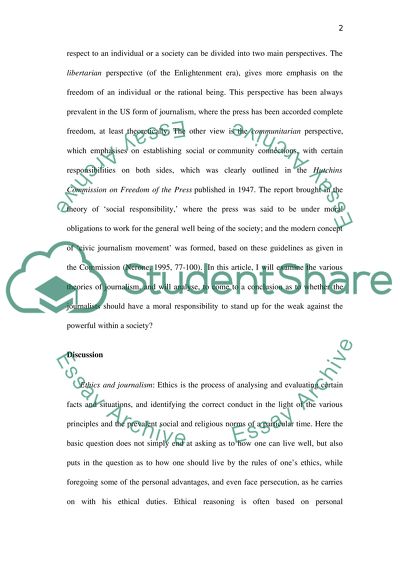Cite this document
(“Journalism should not be just a trade , it should be a crusade Essay”, n.d.)
Retrieved from https://studentshare.org/environmental-studies/1409716-journalism-should-not-be-just-a-trade-it-should-be
Retrieved from https://studentshare.org/environmental-studies/1409716-journalism-should-not-be-just-a-trade-it-should-be
(Journalism Should Not Be Just a Trade , It Should Be a Crusade Essay)
https://studentshare.org/environmental-studies/1409716-journalism-should-not-be-just-a-trade-it-should-be.
https://studentshare.org/environmental-studies/1409716-journalism-should-not-be-just-a-trade-it-should-be.
“Journalism Should Not Be Just a Trade , It Should Be a Crusade Essay”, n.d. https://studentshare.org/environmental-studies/1409716-journalism-should-not-be-just-a-trade-it-should-be.


